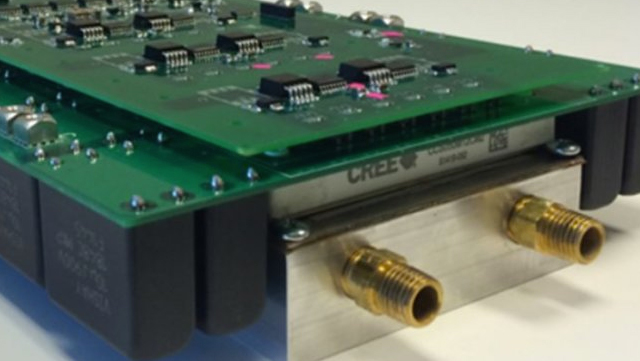Electric vehicles get another boost to range and efficiency
New inverter is made of silicon carbide

If there's one thing that petrolheads constantly complain about when it comes to electric cars, it's range.
Despite studies showing that the vast majority of journeys in the US are less than 50 miles, and that the average distance per trip in the UK is going down, people worry that they'll run out of juice before getting to their destination.
Well, now their fears can be alleviated, at least a little. Engineers at North Carolina State University have developed a new kind of inverter that can improve both the fuel efficiency and range of both hybrid and electric cars.
Silicon Carbide
The inverter is the bit in an electric or hybrid car that makes sure enough energy gets from the battery to the motor when it's running. Normally they're made of silicon.
Now, however, a team at the Future Renewable Electric Energy Distribution and Management Systems Center have built one using off-the-shelf components made of silicon carbide, and in tests it's showing a decent improvement over those made of plain ol' silicon.
"Our silicon carbide prototype inverter can transfer 99 percent of energy to the motor, which is about two percent higher than the best silicon-based inverters under normal conditions," said Iqbal Husain, who worked on the project and has co-authored two scientific papers describing it.
"Equally important, the silicon carbide inverters can be smaller and lighter than their silicon counterparts, further improving the range of electric vehicles," he added. "And new advances we've made in inverter components should allow us to make the inverters even smaller still."
Get daily insight, inspiration and deals in your inbox
Sign up for breaking news, reviews, opinion, top tech deals, and more.
Further Improvements
The new inverter can transmit 12.1 kilowatts of power per litre, compared to a 2010 silicon inverter that could only handle 4.1 kilowatts per litre. "Conventional, silicon-based inverters have likely improved since 2010, but they're still nowhere near 12.1 kW/L," Husain says.
It's also getting closer to the US government's goal of developing an inverter that can manage 13.4 kilowatts per litre by 2020. "Frankly, we are pretty sure that we can improve further on the energy density that we've shown with this prototype," Husain said.
Oh, and the design means that it's also better at dissipating heat, potentially meaning it could lead to the creation of air-cooled inverters that don't require heavy, bulky liquid cooling systems.
"We predict that we'll be able to make an air-cooled inverter up to 35 kW using the new module, for use in motorcycles, hybrid vehicles and scooters," Husain said. "And it will boost energy density even when used with liquid cooling systems in more powerful vehicles."
- Duncan Geere is TechRadar's science writer. Every day he finds the most interesting science news and explains why you should care. You can read more of his stories here, and you can find him on Twitter under the handle @duncangeere.
